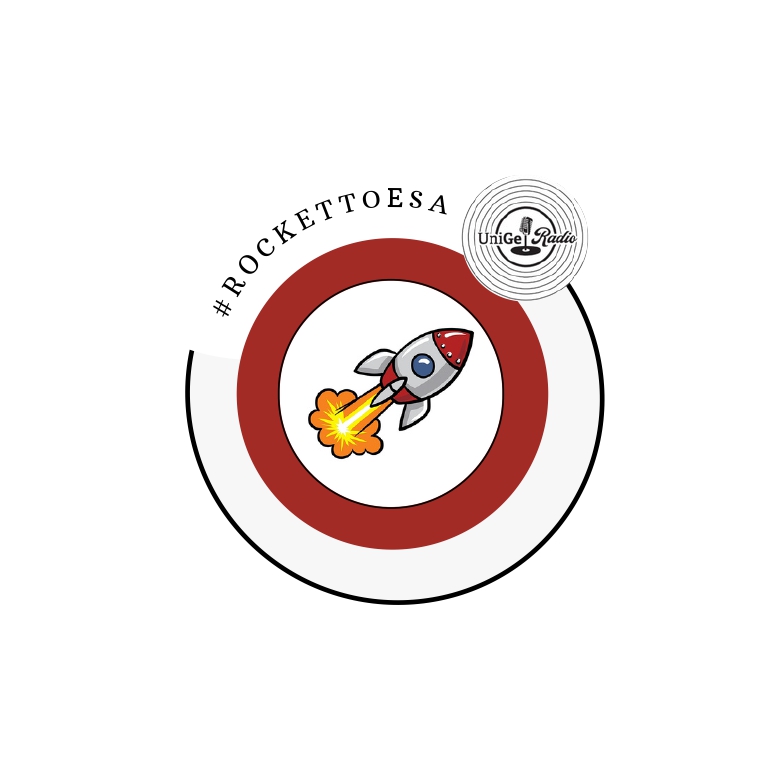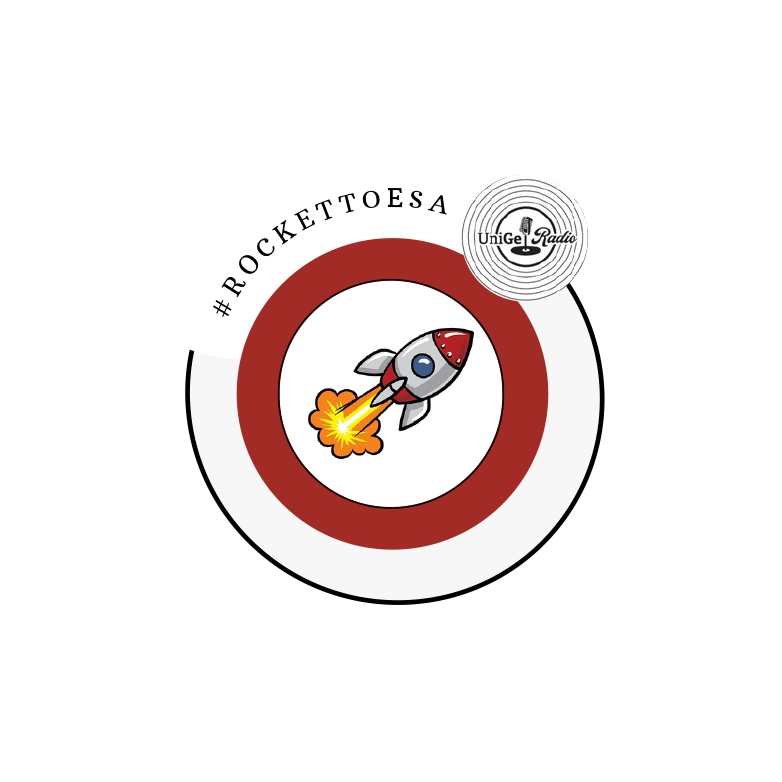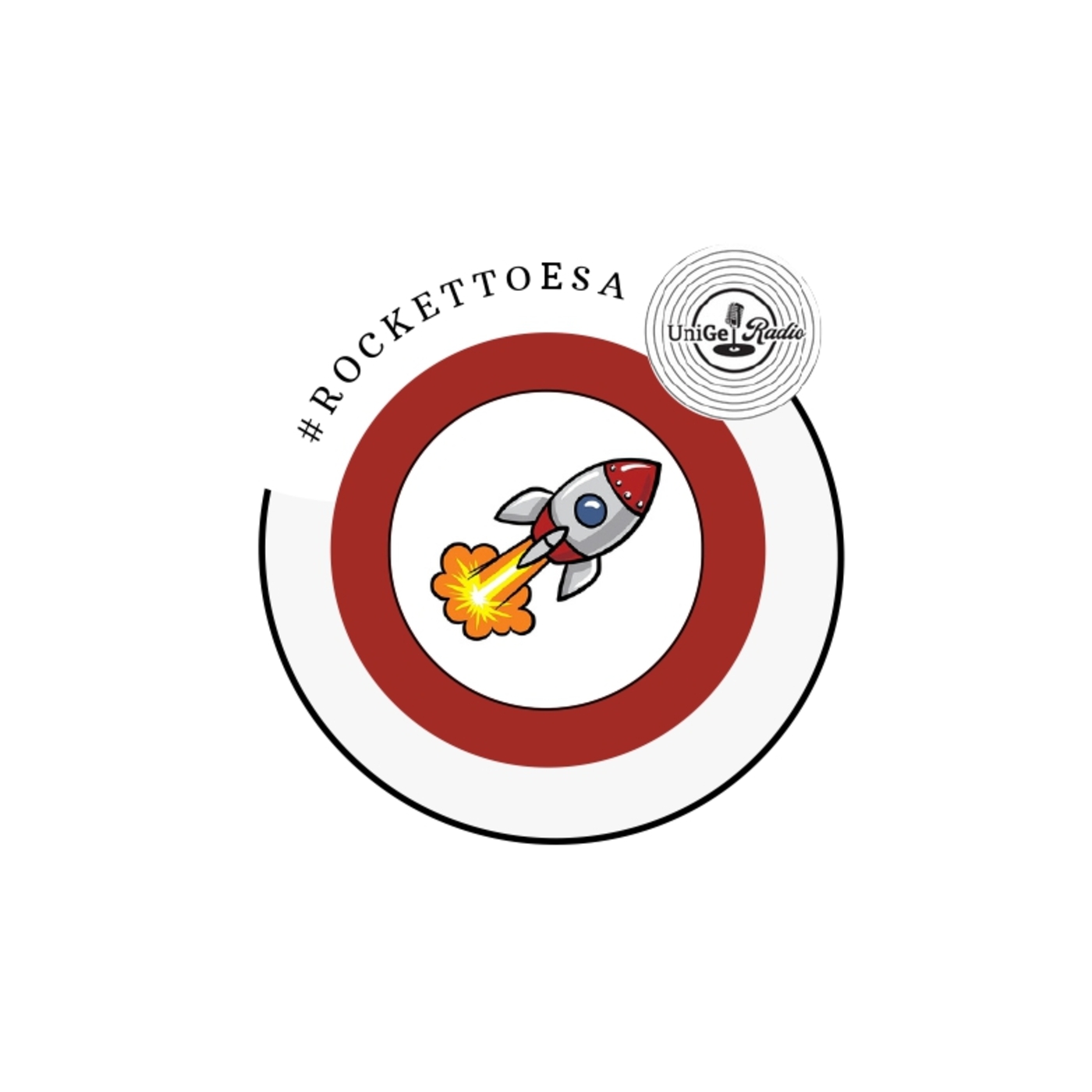Good morning everyone, welcome to UR podcast of UNIGE radio, from the University of Genoa, the harbour of your voice. Here is Marta again, and I am happy to welcome you to the fourth episode of the “Rocket to #ESA2023” podcast. If you are here again today, I guess you got somehow positively motivated by my last episode and willing to discover more. Let’s begin then!
Today I am going to tell you about how my role at the ESA got finally approved, thanks to professor Paolo Piccardo, who actively involved me in the divulgation community he has personally created. Moreover I’ll be happy to share with you som first insights of my work at the ESA.
During the last episode, I told you about the idea of launching a podcasting project, which made me really enthusiastic and hopeful. However, wondering about something is just not enough. You cannot always live on cloud 9; at a certain point you have to come back to earth and put yourself to work practically. So, after planning what my podcast should have been about in collaboration with professor Piccardo, I had to face the worst part: bureaucracy. In the end, after about a week or more of emails between me and the administrative offices of UNIGE and the ESA organisers, my role as a guest and observer at the event got officially and warmly approved!
As Ernest Hemingway once said: “It is good to have an end to journey toward; but it is the journey that matters in the end” . I know this might sound like a standard saying you have probably heard hundreds of times, but it has been definitely true in my case and throughout my life in general. Being adventurous and kind of a free spirit, I have taken up many projects and activities, which sometimes have drained more energy out of me than expected. But that is a huge part of the game: failures and difficulties are what makes you learn the most and what makes the rest look like a bigger success and victory. And even this time, after struggling with all the logistical and organisational tricks, when I finally put myself to work to tell my story in my own podcast, the sweet and sour taste of the previous months disappeared, leaving my mouth fresh and clean for a new beginning. I was developing something completely mine, I had given myself a role and I had reached what I wanted thanks to my commitment. I was definitely riding my wave as a professional surfer. I had the lead!
Of course, as I already said, much of this wouldn’t have been possible without the precious support of professor Piccardo, who got personally engaged to empower my position and push me not to give up. Furthermore, he started to personally involve me as an interviewer to other events organised or co-created by him, such as the CINEVERSITY soirees (which I can only recommend) and the ULYSSEUS RESEARCHERS’ WEEK, where I had the possibility to get even more deeply involved in the project and all the high-institutional matters of the alliance.
On that occasion, professors and representatives from the different innovation hubs of the alliance, as well as local stakeholders, were brought together to discuss about the current status of the hub of Genoa and the research & education challenges it was and still is facing, to then step to a second phase of parallel sessions to co-create and outline possible solutions and projects for the future. Moreover, the participants were also offered various extra activities, to get more deeply in touch with our reality: city tour/visit of the new Robotics Labs / visit to the Ethnomedicine museum / visit to the University Library of Genoa. Having the possibility to take part to such an important institutional event of the Ulyssesus agenda meant a lot for me, because I could really get to the heart of the alliance on which behalf I will have participated to the upcoming ESA in Strasbourg, which would have started exactly five days after the researchers’week.
Coming back to the ESA, of course, after getting the official approval of my participation, I was deeply determined to go there as much prepared as possible, given all the effort I had put in it. So I closely checked the agenda and the event guide book and made a list of the possible people to be interviewed, including not only panel coordinators, but also participants to the panels and a couple of representatives of other alliances. I also took note of the guests and external keynote speakers that would have contributed to the opening session and the closing session, which were all very important institutional actors, such as Philippe Gréciano, president of the Franco-German University, or Michel Deneken , president of the University of Strasbourg.
However, despite all the organisation and preparation, reality never completely complies with the expectancies. There's always an amount of uncalculated factors that come into the mixture of events, which, in the end, turn out to change your plans in the course of action. The good thing is that, whether these additional ingredients will give a better or a worse taste to the final recipe, is mostly up on you. If you are able to improvise and take the best out of the unexpected, then you’ll have the upper hand in every situation. That's exactly what happened to me during the ESA event, because in the end the interviews involved other people than those I had theoretically planned. But to find out more about it, I won’t spoil the surprise. So, if you want to know more, stay updated for the next podcast episodes.
This is Rocket to #ESA2023 on UR podcast, the podcast platform of Unige Radio, the voice of the University of Genoa. To comment or contact us, write to
[email protected] , writing in the subject Rocket to #ESA2023. For more info, visit our website radio.unige.it


